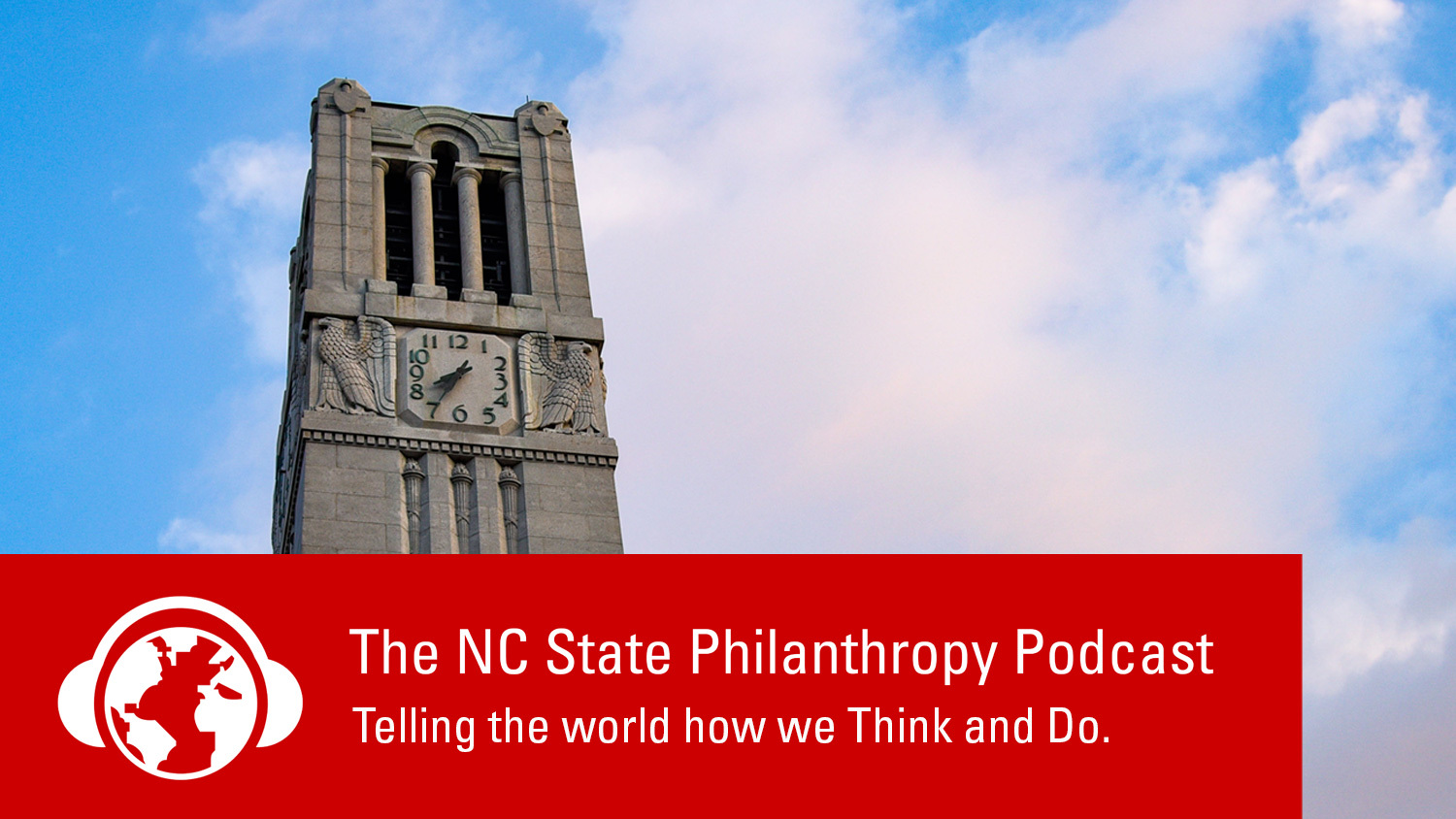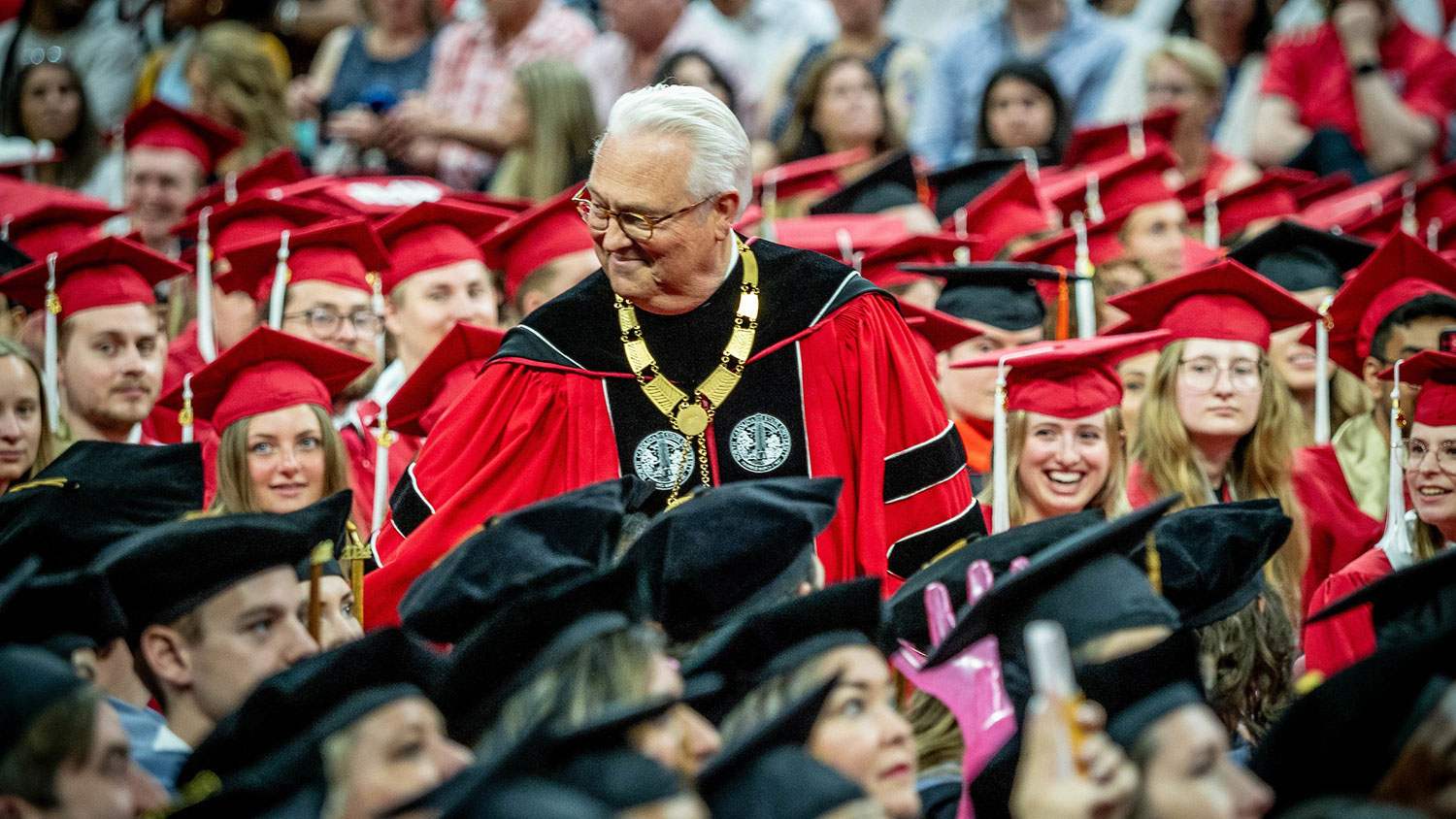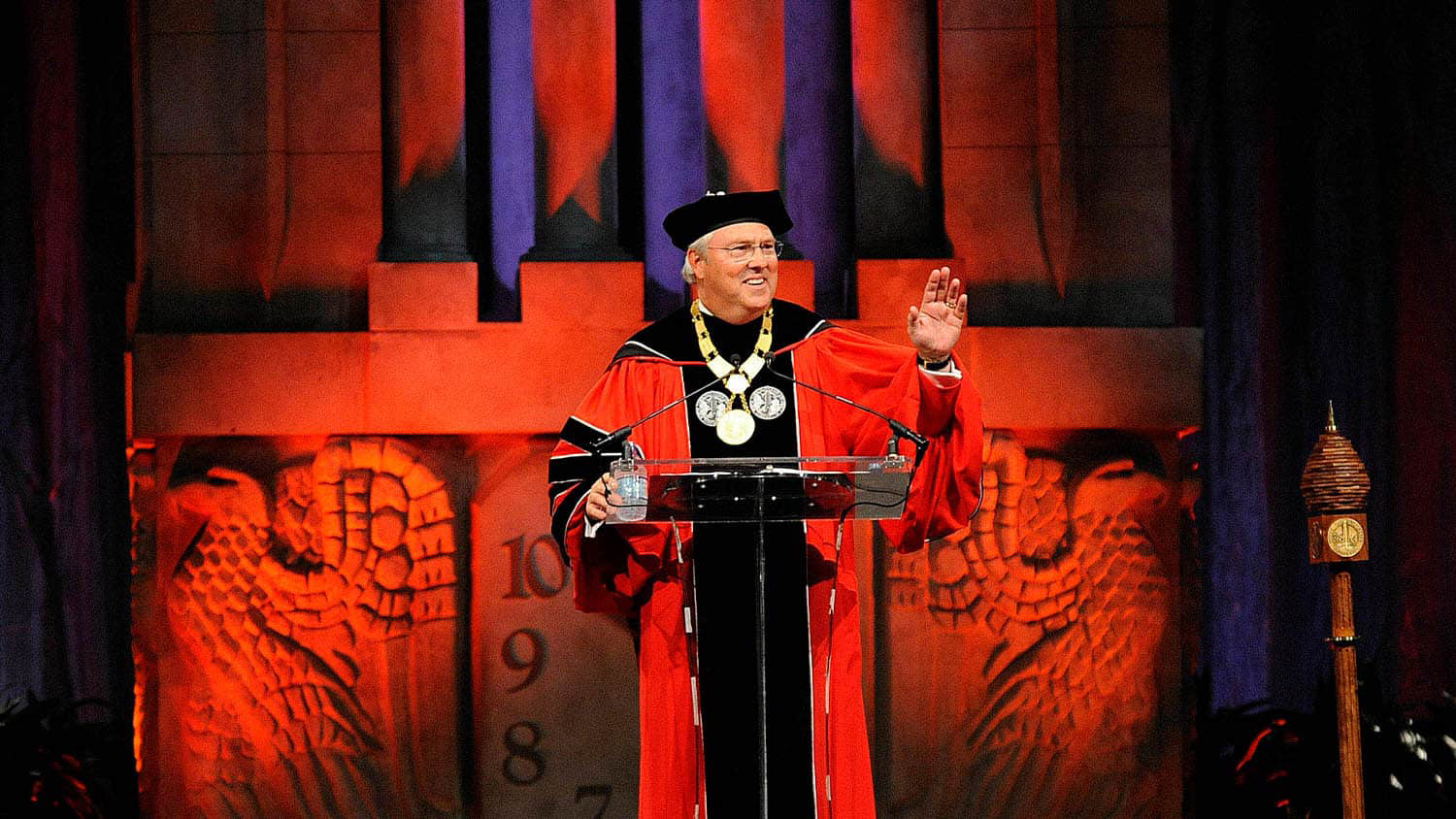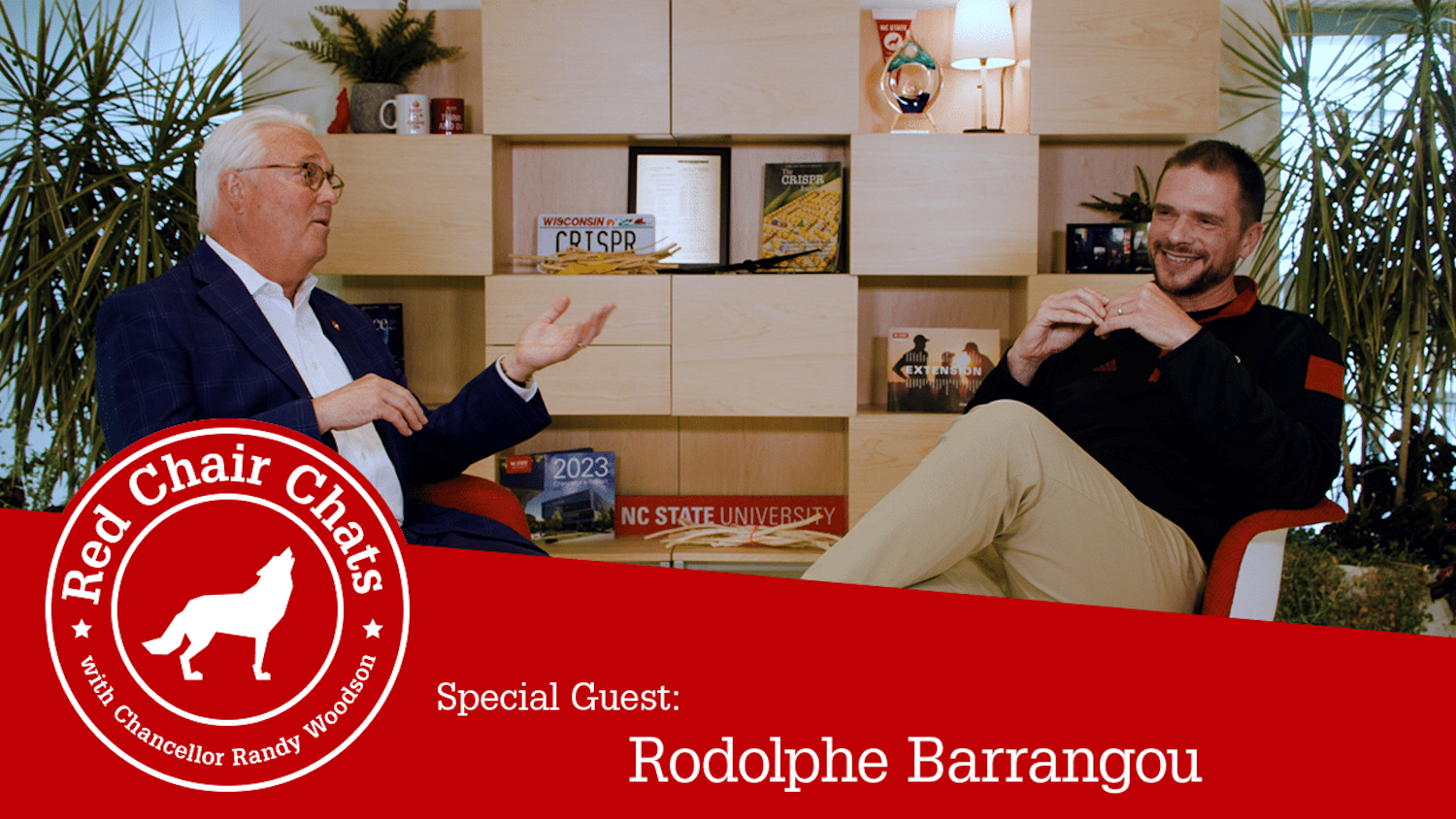The Turtle Rescue Team is a student-run organization that helps treat wild turtles, as well as other reptiles and amphibians. Due to a population and construction boom in the Raleigh-Durham area, the Turtle Rescue Team saw a dramatic increase in patient numbers in 2021, leading the team to use medical supplies and equipment at an alarming rate. With more patients also came the need to store more food for them, which caused a desperate need for an extra refrigerator.
That led the Turtle Rescue Team to create an NC State crowdfunding project to raise the necessary funding. Part of the university’s annual giving efforts, crowdfunding is a relatively new way for donors to make a major impact on various departments, units and projects via smaller gifts. The Turtle Rescue Team saw an extraordinary 310% in its funding goal thanks to the generosity of 211 donors, making it NC State’s most successful crowdfunding projects to date.
Transcript
Theme music (00:01):
Please listen carefully.
Taylor Pardue (00:07):
Welcome to the NC State Philanthropy Podcast, telling the world how we Think and Do through the support of our friends, alumni and more. I’m your host, Taylor Pardue.
(00:18)
On this episode, we’re joined by Niki Theobald, director of development for the North Carolina Veterinary Medical Foundation, to discuss crowdfunding and its impact on the College of Veterinary Medicine’s Turtle Rescue Team.
(00:44)
Thanks so much for joining us today, Niki.
Niki Theobald (00:46):
Of course.
Taylor Pardue (00:47):
To kick things off, just tell listeners a little bit about yourself and what brought you to NC State.
Niki Theobald (00:51):
Sure. So, I’m Niki Theobald. I’m a director of development over at the College of Veterinary Medicine and have been there for just about five years now. Prior to this role, I was at Duke for some time, about 10 years, working at both the Duke Lemur Center for a majority of the time [and] in the school of nursing as a leadership annual giving officer. And then prior to this career, I was actually a zookeeper. Wanted to be a veterinarian growing up. That didn’t happen for a variety of reasons, and so, I found myself in the field of zookeeping, and through there started working a lot of donor events, educational outreach events, and I had a mentor when I was at Duke who asked, “Would you ever think about being a fundraiser?” And I had not up until that point. And here I am about 12, 13 years later.
Taylor Pardue (01:36):
Awesome. Perfect background. Bringing the two things together in this role.
Niki Theobald (01:39):
I think so, yeah! It definitely aligns my passion with my career, so it makes it easy for me to go out and find support for all the things that the College of Veterinary Medicine does.
Taylor Pardue (01:50):
OK. So, as part of that role as director of development, you work a lot with the Turtle Rescue Team. Talk a little bit about, if listeners don’t already know what the Turtle Rescue Team is, what it does, and who makes up that team.
Niki Theobald (02:03):
Sure, sure. So, in my role, my priority is to raise major gifts for the university and the college, which typically would be $50,000 or above. The Turtle Team doesn’t see too many gifts of that level, but it is a passion project of mine to help them. So, I’m lucky to have a wonderful supervisor who encourages us to do
(02:21)
So. So, I partner a lot with our exotic medicine team, as well as the Turtle Team, to help raise funds for them. And for those who don’t know, the Turtle Team is a volunteer organization that was started in 1996 at the College of Veterinary Medicine. It was in collaboration with one of our amazing faculty members, Dr. Greg Lubar, and a local wildlife rehabber who he was helping as she came across injured turtles. They turned it into a teaching opportunity for our students. So, it is a hospital that is located within our campus, and it sees about 500 or more patients year.
(02:59)
It’s currently run by our first- through third-year students. So, they’re gaining experience working with native wildlife, exotic animals, before they’re going into their fourth-year clinical year. So, for those students who have an interest in learning more about the wild counterparts compared to just small-animal practice and large-animal practice, this is a wonderful opportunity, and it’s a great partnership with the community. We have a lot of community volunteers, a lot of NC State undergraduates who are interested in zoology, some faculty, some staff. So, it’s a great little microcosm within the College of Veterinary Medicine for anyone who loves these little guys.
Taylor Pardue (03:35):
That’s awesome. And I know a lot of times we think of the veterinary college as pets — dogs, cats, things like that. So, it is great to see how it influences, like you said, more exotic species, more wild species, things like that.
Niki Theobald (03:49):
And it’s definitely a need in our community. Of course, this area is growing at a quick rate, and so, we’re seeing a lot more crossings of wildlife in humans, and that typically results in car accidents, pets versus wildlife and things like that. So, it’s definitely needed in our community more and more every year. So, we’re really lucky that we have it right here at NC State.
Taylor Pardue (04:13):
So, you mentioned how, usually, this team doesn’t really receive some of the bigger gifts that the College of Veterinary Medicine does. Talk about crowdfunding. If listeners don’t know about that, that is a relatively new way of giving to the university that we have, but talk a little bit about how it helps further the mission of the Turtle Rescue Team.
Niki Theobald (04:30):
Sure. So, no, this was really exciting for me to be a part of during my time at Duke. Crowdfunding, as far as private platforms, was just becoming popular in [the] early to mid-2000s — around 2005 or so. And we had done a small project just testing it with a lemur enclosure that we needed funding for; just to kind of see how that would go. And crowdfunding, for those who don’t know, it’s essentially saying a bunch of little gifts can have just as big of an impact as one large gift. So, for a lot of people who can’t make a $50,000 gift but still want to have an impact, how can they do that? And crowdfunding is an excellent vehicle to do so.
(05:06)
So, NC State, I was on a roadmap committee a few years back when they were starting to explore crowdfunding as a new platform for annual giving, and I believe it was Purdue who had tested it out, and we wanted to replicate that model. So, through that committee, we decided to attempt crowdfunding here at NC State through that platform that Purdue was using. And in October 2021, I believe it was, we had our first go-round.
(05:32)
And so, we were asked to participate as the College of Veterinary Medicine when it came for project ideas. And I suggested the Turtle Rescue Team because, again, it’s a student-run organization. It’s not one that we really have our hands on too much. We typically let the students do as much as they can, but we thought it would be a really great opportunity for this small organization that had some big needs and that had such community to support to kind of put a project out there and see how it went.
Taylor Pardue (05:59):
OK.
Niki Theobald (05:59):
So, our original goal was $5,000, and that was to both buy medical supplies for the increase in caseloads that the students were seeing, but also they needed a new refrigerator freezer to store medications and diets for these guys that we were housing at the time. So, that was the original goal, and we ended up — to date, still were — the highest-performing project that there was. We raised $15,505 from 211 donors, and we just far surpassed anything we thought we would be able to do.
Taylor Pardue (06:29):
That is amazing, yeah. What do you attribute that success to? Like you said, 211, I believe, 211 different donors. How did you really connect with those donors and bring them into this project?
Niki Theobald (06:41):
Sure. So, that was a lot of fun. I would say one of the biggest, or one of the largest, ways these platforms have success is through student interaction, and we really encouraged our students to be a part of this — not just on the NC State College of Vet Med social media channels, but the Turtle Team is small but might, and they have students who run their social media, they have students who run the rehab and then they have students who kind of oversee all the administration part of it. So, we started a meeting with them. They have a really large presence on, at the time it was Facebook, getting more into Instagram and Twitter as well, and formulated a strategy with them using their social media channels as well as the college’s to really just blast this out.
(07:22)
In addition, sending emails to anyone who has ever dropped off a turtle before that was injured. They can opt in to receive communications from the Turtle Team, so this was a great opportunity for them to reach out to them again, said, “Hey, you’ve used us in the past. We hope our services really helped you out as well as the native wildlife. Would you consider making a gift in support of this project?” And I think, between their social media efforts, where were just phenomenal and the emails that went out and word of mouth and it really is kind of a little cult following in the Triangle. I think we just ended up with some amazing results.
Taylor Pardue (07:58):
That’s amazing. Crowdfunding really does allow us to help these units and programs that, like you said, may not receive some of the bigger gifts. What would you say to someone who maybe is considering giving to NC State for the first time and is looking for something like this? How can they see the impact of their gift really lived out, like you said, through social media and things like that, really staying in touch with the Turtle Rescue Team?
Niki Theobald (08:19):
Well, I think each individual area of NC State has a group of supporters who is just really passionate about it, whether it be a general fund in one of the colleges to a small thing like Turtle Rescue Team. And I think for the donors, it’s really finding what you’re passionate about. Cause-based giving is becoming so much more important to people these days. They really do want to see that impact of the dollar, whether it be $25, $100 or whatnot. So, I think it’s really up to the institution to really steward that gift well and that donor knowing that it doesn’t matter the dollar amount, they’re going to get updates on what’s happening with that fund. They’re going to see what those dollars are doing and whether it be their individual dollars or collectively what those dollars did. I think, not so much on the donor’s behalf. Of course, they should be following, you know, maybe social media, if they have that, websites or whatnot, but I really think it’s imperative for the organization or that group to keep their donors up to date on what’s going on and showing the impact of those dollars to obtain those continued funding opportunities.
Taylor Pardue (09:20):
Sounds great. What are some of the fun stories probably that you have from your years of volunteering? What are some of maybe the outstanding cases that come to mind when you think of the Turtle Rescue Team?
Niki Theobald (09:31):
Oh gosh. Such a fun group. So, in addition to raising money for them, in my previous life I was a zookeeper, so I have a passion for these guys. So, of course, I signed up to be a volunteer, and when you’re a volunteer with the Turtle Team, you can either come in and help at the hospital or you can volunteer to be someone who releases the turtles once they’re done with their treatment. That is what I do.
(09:52)
So, it was probably about two or three years ago prior to COVID, I got my first case, get the email saying, “Hey, we have these turtles that need to be released in X, Y, Z — whatever places, all over the state.” So, if you’re on your way to one of those areas, you just replied to the email and say, “Yeah, of course I can grab this turtle and bring him back wherever it needs to go.”
(10:12)
So, in this case, it was in Angier. I live in Fuquay[-Varina]. So, I said, “Yeah, I’ll pick up the turtle. Sure, no problem.” Get there, and it is a giant snapping turtle named Cookie Dough. I’m like, “Of course I get the snapping turtle my first one.” She’s in a Rubbermaid container. They put her in the back of my car, and she is to go to this pond in Angier out in the country and be released.
(10:33)
If you don’t know, wherever turtles are found, that’s typically where we will release ’em because they’re going to spend the rest of their lives trying to find that place again. So, it’s really important when people bring ’em in to note where they found them, and that’s where we release. So, in this case, I’m headed down U.S. 1 with a giant snapping turtle in the back of my car, and I hear her start crawling around. She did not have a lid, and I heard it tumble, and she was out in the back of my car going down U.S. 1 during rush hour — wasn’t quite sure what to do.
(11:03)
So, I was just praying she didn’t come over that front seat. So, let her just kind of wander around a bit in the back of my SUV and got to that pond in Angier, which just so happened to be on private property, which happens occasionally. Went to the front door, rang the doorbell and told them I had the snapping turtle to be released back in their pond. And that woman did not want that snapping turtle back in her pond. It tormented her cows whenever they were wading in the pond, it bit their ankles. So, she was very adamant this was not happening. I, of course, was like, “Well, it needs to happen.”
(11:34)
She’s like, “It’s not.” But she gave me the suggestion right across the street from her was another pond that a neighbor had who he did not mind. So, luckily, it was just right across the street. Took Cookie Dough, thinking, “How do you get this giant snapping turtle back in this box without getting bit?” And then I just realized, “Hey, Niki, you’ve restrained animals a lot bigger than this in the past. Just do it.” So, I lifted her up the proper way from the back. I got her in her container and released her back into the pond across the street. And the rest is history.
Taylor Pardue (12:05):
Perfect.
Niki Theobald (12:05):
We’ve also had my kids go to Colorado for a month in the summer. I’ve used their bathtub to rehab snapping turtles. So, for some reason, I always end up with those guys. But yeah, it’s always fun. Always an adventure, but always fun.
Taylor Pardue (12:16):
If you could handle snapping turtles, I guess you can handle anything.
Niki Theobald (12:18):
Pretty much do anything. Yes, yes. Those guys are pretty intimidating-looking, but yeah.
Taylor Pardue (12:25):
What are some ongoing needs and some upcoming opportunities that potential supporters might have with the Turtle Rescue Team?
Niki Theobald (12:31):
Sure. Yeah. So, the Turtle Rescue Team is always in need of funds. They are constantly, year-over-year, seeing more patients that they saw the year before. And, of course, with the increasing cost of medical and supplies and food and all of that, their funding needs to increase as well. So, I would say for anyone interested in supporting the Turtle Team, definitely their general fund is something that always needs money. Again, $10 goes a long way for that team. $25, same thing.
(13:00)
So, we always keep their link open through our website. They do participate in Day of Giving as well. It’s always a crowd favorite, of course. And like I said, the students do an excellent job of getting the word out there and making really fun and engaging posts and videos for people to get involved with. And we do hope, again, that crowdfunding will be another opportunity.
(13:23)
But, of course, we want to kind of also highlight other parts of our veterinary school and hospital as well. So, we’re testing out a few other ones right now. This past year, we were really fortunate. We talked that they don’t receive many major gifts, but we actually had an alum of ours who’s very passionate about the Turtle Team, and she actually funded an internship for the Turtle Team. So, we have our first — well, actually, this would be our second intern, now, there. So, since it is a student-run organization, it’s nice to have someone there to kind of help the students and train the students. And, sometimes, our faculty don’t always have that time.
(13:56)
So, now we do have a full-time intern in there who’s helping out the students, which was phenomenal to be able to raise money for that. We’ve had a local construction company that actually funded remodeling the Turtle Team hospital for us. So, it was an in-kind gift, and they really just made the space that they have a lot more usable and friendly for the people working in there and to be able to house more turtles. So, I think there’s always needs with this group, and I think there’s going to be continuing needs as the population increases throughout these counties. So, definitely every dollar does matter with this group. So, I would say get involved, whether it’s your time or your treasure, always needs volunteers and money to continue doing what they’re doing.
Taylor Pardue (14:41):
I think that’s such a great way for people who may have never given before or are looking for something recurring that they could really make an impact with. This is such a great project because, like you said, there are always ongoing needs with medications and things like that. And, again, you really see the impact of your dollars at work here.
Niki Theobald (14:55):
You really do. And another thing I’d like to point out: This group is highly funded by a lot of local Boy Scout and Girl Scout groups, too, because they know about, or maybe they’ve brought a turtle and they do their little fundraising crowdfunding internally through their groups. And so, we see a lot of support come through these younger generations as well who are just dipping their toe into philanthropy and giving back to things that are really important to them. So, this is also a really popular one for the younger generation, too, to get involved with.
Taylor Pardue (15:20):
That’s very cool. And hopefully inspire new veterinarians to come into the college and things like that, too.
Niki Theobald (15:25):
Yeah. Additionally, and our latest thing is we are trying to get a Turtle Rescue Team license plate approved through the state of North Carolina. So, that’s been an ongoing effort with the students. We need a minimum of 300 people to sign up, and we have been very fortunate that we had a generous donor who supports the Turtle Team actually prepay for those 300 plates. So, all you have to do is actually go to their website and fill out the DMV paperwork and then, once we get to 300, you will be the proud owner of a Turtle Rescue Team license plate.
Taylor Pardue (15:55):
All right. That’s excellent.
Niki Theobald (15:56):
Yeah, it’s fun. It’s a great group.
Taylor Pardue (16:00):
Thanks so much, Niki, for telling us a little bit about this project and just for all that you do in your role to really support the College of Veterinary Medicine.
Niki Theobald (16:07):
Of course. No, this is great. Thanks for having me.
Taylor Pardue (16:16):
To learn more about crowdfunding and how you can help NC State Think and Do, please visit crowdfunding.ncsu.edu.
(16:20)
If you’d like to hear even more stories of Wolfpack success, please subscribe to the NC State Philanthropy Podcast today in the Apple or Google Podcast stores, on Spotify or through Stitcher. Be sure to leave us a comment and rating as well to let us know how we’re doing.
(16:37)
Thanks for listening, and as always, go Pack.



